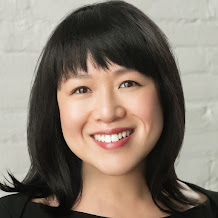By Jessamine Chan
Simon and Schuster
2022
336 pages Literary
Dystopia! Thank goodness! The School for Good Mothers
is Jessamine Chan’s first novel, and it is every mother’s nightmare.
Frida Liu is divorced from Gust and shares custody of their
toddler daughter, Harriet, with him and his partner, Susannah. Frida is
overtaken by stress and anxiety one day and leaves Harriet alone for two hours
while she goes to her office to pick up some paperwork. Neighbors hear Harriet
crying and report Frida to Child Protective Services. And her nightmare begins!
As mothers, we have all done things that we might be ashamed
of—spanking, ordering kids to go play outside, denying them treats when they
misbehave, and on and on. In
Philadelphia in an unknown dystopian future, punishment for reported mothers is
far worse than a slap on the wrist. Harriet’s custody is given completely over
to Gust, Harriet’s father, and Frida is sent to a “school for good mothers”
where she must undergo one year of re-education in parenting and only have a once-a-month
phone conversation with her daughter. If Frida disobeys the rules of the school
or fails to grow in her mothering skills, the phone conversation is denied. Her
ability to ever get custody of her daughter depends completely on her ability
to learn new skills as a mother.
Mothers at the school are there for a variety of reasons,
but all have been brought to the attention of Child Protective Services at some
point in their parenting. At the school, each mother is given an AI doll that
closely resembles their own child, and the doll records every moment he or she
is with their mother. One of the key components of the novel is the invasive
nature of facial recognition software—something that we are just beginning to
understand.
The story is told through Frida’s eyes, but it is told in
the third person. We are able to have a somewhat detached, although horrified,
view of the school and the mothers and the potential power of artificial
intelligence.
The School for Good Mothers took me quite a
while to read, and every reading session was haunting. I found myself
questioning what makes a good mother nearly every day as I watched families
while I was on vacation. I told the basic plot to several people as I was
reading it, and everyone had examples of “bad” parenting from within their own
lives. For example in the novel, one young mother was at the school because she
had her 12-year-old niece take care of her baby when she was called into work. As
a 12-year-old, I was babysitting all over the neighborhood. No one reported those
mothers! The other day, I watched a
mother trying to cope with a screaming toddler in the checkout line at the
grocery store. I remembered hauling a screaming child out of the grocery store,
leaving a cart full of groceries behind!
No matter how hard Frida tries, she cannot succeed in
becoming a good mother. The NY
Times reviewer says, “Chan poses a grim question: What happens to a person
when she has no way to beat an intolerable system and no way to escape it?”
I have not had any nightmares yet, but I am
constantly aware of the parents around me, and for the most part, their awesome
skill in parenting. The School for Good Mothers was very
disturbing and I will be thinking about it for a long time.
The School for Good Mothers has been optioned to be a movie or a tv series. I will be
looking forward to it.
Jessamine Chan’s website.


No comments:
Post a Comment